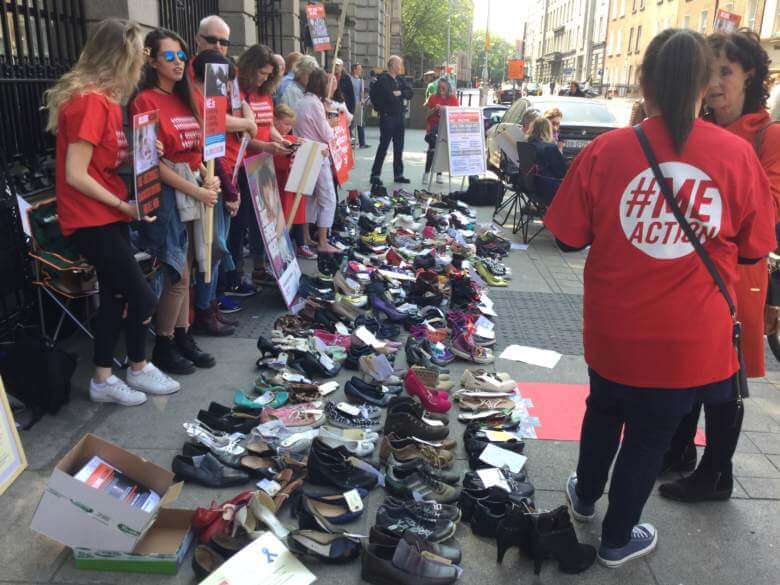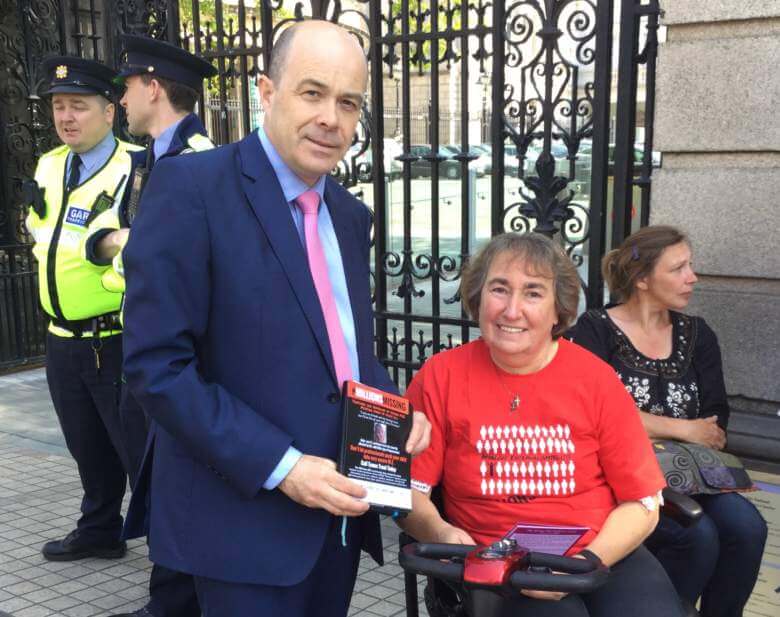
Local Minister Denis Naughten joined Christine Fenton from Boyle outside Dáil Eireann to highlight the plight of Myalgic Encephalomyelitis (M.E.) sufferers throughout Ireland.
Speaking at the event Christine Fenton said “Myalgic Encephalomyelitis has been classified as a neurological disease by the WHO since 1969. Over the past number of decades the condition of M.E. has been coined with Chronic Fatigue Syndrome. These illnesses are not the same thing. They have different diagnostic criteria, but they are often confused as being the same thing, causing untold harm to people with M.E.”
Many patients with M.E. are bed-bound and housebound. They were too ill to attend a demonstration. In their place they sent a pair of shoes with their name tag on them and some detail about themselves.

Minister Naughten assured Christine and the group that he will raise the issue at Government level with Cabinet colleagues and in the meantime he advised Christine and advocates to investigate the possibility of M.E. coming under the Rare Diseases definition.
The National Clinical Programme for Rare Diseases was established in December 2013 with Professor Eileen Treacy as the Clinical Lead. The Programme builds upon the work done through the public consultation processes in recent years. A multi-disciplinary working group delivers the work of the programme and is made up of range of healthcare professionals working in the area of patient care and rare diseases. The work of the programme is overseen by a Clinical Advisory Group, a committee of the Royal College of Physicians of Ireland, made up of consultant specialists from a broad range of disease specialities and both paediatric and adult services.
The Programme is based on three pillars:
Access
Patients with rare diseases and their families should have access to quality information and support, to enable accurate and timely diagnosis and access to appropriate specialist care.
Quality
Clinical expertise for rare diseases should be provided through a network of national Centres of Excellence/Health Care Providers or at designated centres abroad.
Value
Timely access to appropriate diagnosis and care should result in decreased mortality, morbidity and disability and be cost-effective.
The Millions Missing demonstration is part of a worldwide event initiated by ME Action to coincide with World ME Day. Find out more by visiting meaction.net

